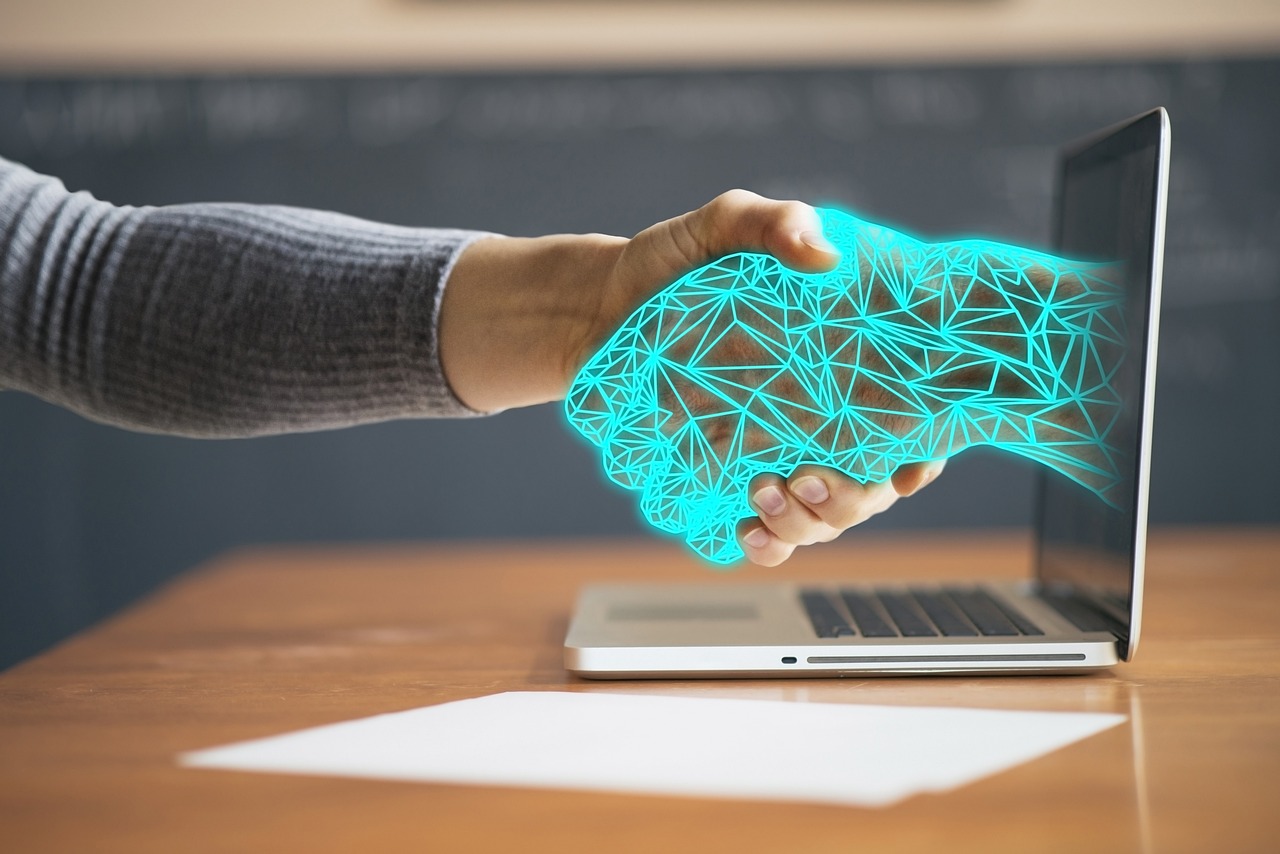Killian Flood: Generative AI will change how lawyers work – we must be ready for it

Generative AI is a hot topic in legal circles, with some companies boasting that their AI can replace lawyers. Killian Flood examines how AI might shape the professions in the coming years.
Decades ago, before widespread use of computers and the internet, maintaining a seat in the Law Library was a necessity for barristers. The Library was a central hub in a paper-based world. Nowhere else contained the textbooks and case reports which were used on a daily basis in research and drafting. As the primary workplace for all barristers, spending time in the Library would help you to get noticed and potentially pick up a few briefs. Out of sight, out of mind, as the saying goes.
Being physically present in the Library was also essential because this was where one could access their colleagues to develop skills in advocacy, drafting and legal knowledge.
Times have changed. Mobile phones and email mean that a lawyer does not need to be chained to the desk to be available to work. The proliferation of paperwork and computer data means that personal office space has become a must for any busy practitioner. Online materials allow people to do their research away from the Four Courts. As such, the Library has emptied out, with the only truly busy periods being the minutes before court starts and the midweek lunchtime settlement meetings.
The advent of the internet and technology was the previous generation’s disruption to legal practice and “the way things are done.” For the current generation, it seems like we are about to experience a disruption of our own.
Generative artificial intelligence has been a hot-button issue for several years now. Lawyers across the spectrum will have heard claims that AI will soon be doing their jobs better and cheaper. Similarly, everyone has heard of the New York attorney who relied on ChatGPT to write his legal submissions, much to his cost.
Last week, the Bar of England and Wales published guidelines on the use of generative AI, where it noted that there was nothing inherently improper about using AI tools in legal practice, but also warned that the tools must be properly understood by practitioners and used responsibly.
So far, there has been significant trepidation amongst Irish lawyers to adopt generative AI into their own practices, most likely because the technology is not well-understood or tried and tested. Lawyers are slow to change their working practices at the best of times.
However, A&L Goodbody recently took the plunge and announced a partnership with Harvey AI, a specialist legal generative AI platform. Like many generative AI platforms, Harvey AI is a large language model system, meaning that it has the ability to achieve general-purpose language generation and understanding. Unlike other AI platforms, Harvey AI is specifically designed for the legal industry. It is built from OpenAI’s GPT AI, meaning that it shares a common link to ChatGPT, but Harvey AI has also been trained with general legal data, such as case law and legislation.
As such, Harvey AI claims to assist in classic legal functions such as contract review, litigation and regulatory compliance. More notably, the generative element can create legal documents based on input information.
No more than a tool
Imagine for a moment that you are a partner in a solicitor’s firm with an upcoming client meeting involving a complex merger. You have a significant brief to review before attending the meeting. Currently, as part of your preparation, you have a junior colleague consider the papers and write up a comprehensive summary, highlighting possible areas of difficulty or matter requiring further review. Obviously, this will take the junior colleague some time and then you will need further time to consider the matter for yourself.
In theory, generative AI can produce the same summary within minutes. As such, the junior colleague (or partner themselves) can use AI to cut through hours of typing and immediately cross-reference the AI’s summary against the content of the brief.
Similarly, a barrister tasked with producing written legal submissions could ask generative AI to produce draft submissions on particular legal issues and then edit those submissions as necessary, rather than laboriously type out or dictate the submissions from scratch.
It is no exaggeration to say that the potential efficiency gains from generative AI will fundamentally alter the day-to-day working practices of the lawyers who adopt it. Given the powerful nature of the tool, it is easy to envisage a world where generative AI is ubiquitous amongst legal practitioners, much in the same way that computers and IT systems are found in every office space today.
However, it is important to emphasise that generative AI is no more than a tool for lawyers to engage in legal practice. While nobody can predict the future, the doomsday concerns for the legal professions are overblown.
Take, for instance, the fanciful notion that judges and advocates will be replaced by AI in the coming decades. It is constitutionally illiterate to suggest that the Judiciary (a branch of the government) would be replaced by machines. What’s next, AI politicians? A right-wing populist ChatGPT bot running for a Dáil seat against the lefty-lawyer Harvey AI bot, perhaps?
The EU has been proactive in legislating to regulate the use of generative AI, focusing on issues such as transparency and data protection. The regulation of the AI marketplace is welcome as it will set the basis on which generative AI may be used. In particular, the EU’s AI Act (once enacted) will require AI systems to be overseen by people rather than automation, so do not expect AI law firms to spring up any time soon.
More than anything, the practice of law is a human-centric endeavour. Trust, confidentiality and fiduciary responsibility are crucial elements of the lawyer/client relationship and cannot be replicated by an AI.
Autopilot
I think the best way to conceptualise generative AI is to view it as an autopilot on a plane. While pilots directly perform the take-off and landing of all flights, the autopilot is in control for most of the flight time (albeit under constant monitoring from the pilots). In the same way, where generative AI might do most of the heavy lifting in terms of document generation, lawyers will still be essential to the entire process, particularly on the front and back ends.
Those in the AI sphere are quick to emphasise that the output of generative AI is only as good as the input information. As a lawyer, there is a skill to asking the right questions of a client to identify the key issues of concern. The experience and knowledge of a lawyer is also crucial to making final decisions in advisory, transactional or litigation matters.
The imperfect nature of generative AI’s content is highlighted by the Bar of England and Wales. The Bar Council’s guidance pointed out that AI can suffer from so-called hallucinations and biases, which cause convincing yet false legal information to be generated by AI. Similarly, the Bar Council warns that AI often has difficulty explaining its internal decision-making process or its output. Accordingly, barristers have been advised to thoroughly review all generated documents.
Moreover, the Bar Council’s guidance advises that barristers should not share legally privileged or confidential information with AI. Data protection law demands that lawyers do not provide client information to third parties without express consent and this is particularly important with AI. Strong controls and safeguards are essential for any lawyer using client information to generate documents.
AI will change how lawyers operate in a positive way. However, as we have seen, it also introduces new liabilities for lawyers as well. In this context, education is key. Both the Bar of Ireland and the Law Society should be urgently publishing similar guidelines to assist practitioners in making educated decisions on the use of AI.
Larger questions
Additionally, beyond changes in day-to-day practice, there are larger questions as to the effect of AI on the legal services market. For example, we do not know what the cost of AI will be to law firms and how that cost will be passed on to clients. Personally, I am pessimistic that there will be great savings in legal fees because there is no incentive for lawyers to use a system that cuts their earnings. Equally, AI has been utilised in e-discovery for over a decade, but such services remain expensive.
The increase in efficiency also calls into question how many lawyers will be needed in the future, particularly in larger firms. It seems to follow that a lawyer with access to AI will be far more productive and, consequently, fewer human resources are needed. Barristers may find that the drafting of pleadings, affidavits and submissions is increasingly done by solicitors with AI.
We also do not know how much competition there will be amongst AI companies in the legal sphere. While software companies are currently competing to produce their own AI systems, it may be the case that we end up with a dominant player similar to Google or Microsoft. This may be an issue if lawyers are using the same AI system in adversarial work, such as generating opposing legal arguments in litigation. In my view, this is an obvious conflict and reinforces the need for human lawyers.
Finally, it will be interesting to see if AI is adopted by judges and whether specific rules are necessary for them in light of their constitutional function. It seems to me that judges should be discouraged from using AI to generate reasons for their decisions. For me, there is simply too great a risk that the legal system is diminished if judges rely on AI to write the operative sections of judgments.
In 1854, Henry David Thoreau wrote that “men have become the tools of their tools”. Though I think the intervening 170 years have proven this quote to be untrue, lawyers must be ready for AI to change how legal practice works, for better and for worse.










